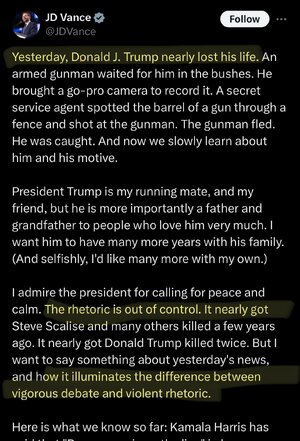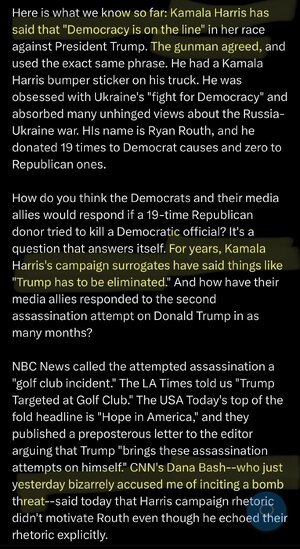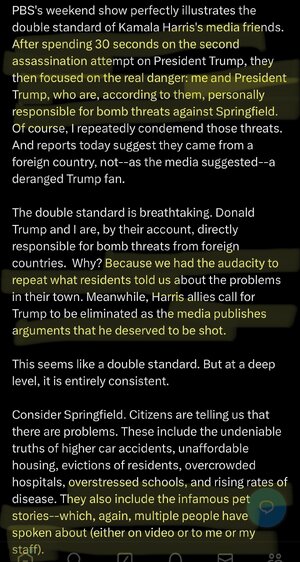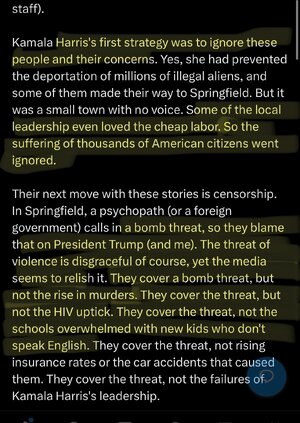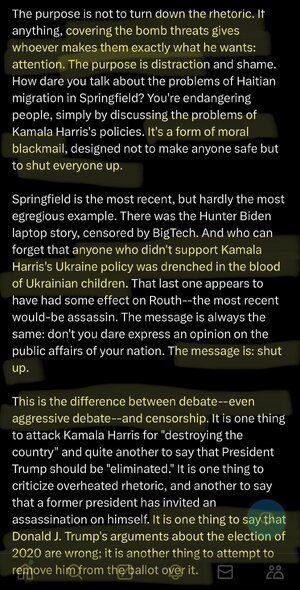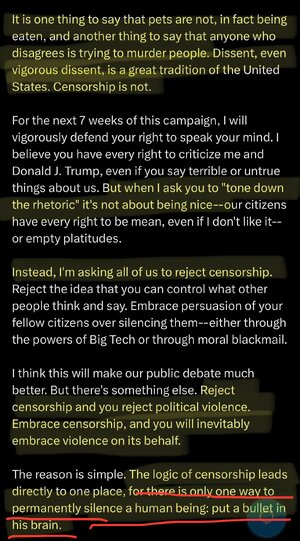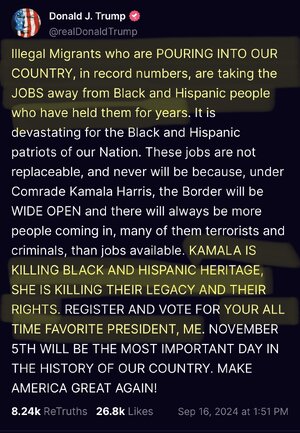[paywalled article above, related one here:
“… As the borough manager of Charleroi — a small Pennsylvania town about 30 miles south of Pittsburgh — Manning is all too familiar with those types of xenophobic allegations, as similar claims have circulated around his borough.
While Springfield’s city manager, Bryan Heck, is dealing with
false theories about “people eating domesticated pets,” Manning said in Charleroi, there are baseless claims such as “people on Facebook saying that there’s a government-funded tent city in the
Rite Aidparking lot, that there’s people walking down the street carrying live chickens.”
… More than 2,000 miles away from the sleepy Pennsylvania town during a rally in Tucson, Arizona, Thursday, Trump promoted inflammatory rhetoric about Haitian migrants in Charleroi on the national stage, advancing the misleading claim that the Washington County borough’s Haitian immigrant population was costing local taxpayers hundreds of thousands of dollars.
He also suggested the town is “virtually bankrupt” and that the immigrants are bringing an increase of crime, neither of which are true. The borough’s crime rate is down, Manning said.
“(Charleroi) experienced a 2,000% increase in the population of Haitian migrants under
Kamala Harris. So Pennsylvania, remember this when you have to go to vote ... just remember this 2,000% increase,” Trump said in Tucson.
“It’s a small town. All of a sudden they got thousands of people. The schools are scrambling to hire translators for the influx of students who don’t speak not a word of English, costing local taxpayers hundreds of thousands of dollars.”
… The total immigrant population in the glassmaking town of Charleroi has increased by 2,000% in the last two years, CBS News Pittsburgh
reported in March. That figure is relative, Manning said, given the borough’s small population. In 2022, there were 4,324 people living in Charleroi, according to the latest census estimates, and in 2020, Charleroi’s population of foreign-born individuals was just under 3%.
Haitian refugees have legally come to Charleroi for a number of reasons, including to escape violence and political unrest in their home country — drawn to the borough on the Monongahela River for its affordable housing and meatpacking jobs, the local Observer-Reporter
reported in June 2021.
… As of March 2024, the
majority of English Language Learners (ELLs) at the Charleroi Area School District were from Haiti. The district hired more ELL teachers, an ELL coach for the teachers, and an interpreter that cost over $400,000.
… The district, Zelich said, gets reimbursed by the state. As enrollment increases, so does the reimbursement and funding from the state Department of Education, Zelich said.
… Manning emphasized that the Haitian community is an “easily observable reality” in Charleroi — a town which in 2022 was 77% white, 10% Black, and 3% Latino — but that the new residents are “not the burden on the local government or any of our resources or anything that’s being portrayed.”
“It’s no different than, you know, people moved to here from Tucson, Ariz., you’d have to deal with it,” Manning said. …”

